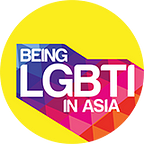Yogyakarta Principles plus 10: Reflections, updates and next steps
6 December 2017
Phnom Penh — Advocates for human rights of people with diverse gender identity and sexual orientations took part in a panel discussion on the newly revised Yogyakarta Principles plus 10 at the ILGA Asia Conference today in Phnom Penh, Cambodia.
The session, titled “Yogyakarta Principles +10: Reflections, updates and next steps”, was convened by the United Nations Development Programme (UNDP) and ARC International. It aimed to improve understanding of the revised principles among National Human Rights Institutions (NHRIs), NGOs and LGBTI advocates to ensure that the rights of lesbian, gay, bisexual, transgender and intersex (LGBTI) people are adequately promoted and protected.
The Yogyakarta Principles were adopted at a meeting of experts in international law in 2006 in Yogyakarta, Indonesia, and outline legal standards for how governments and other actors should end violence, abuse and discrimination towards LGBTI people. Since their inception, the principles have garnered praise for enshrining the rights of persons of diverse sexual orientations and gender identities.
In 2017, the principles have undergone an update, with the revised principles reflecting significant developments both in the field of international human rights law and in the understanding of violations affecting persons of ‘diverse sexual orientations and gender identities’ (SOGI), as well as a recognition of the often distinct violations affecting persons on grounds of ‘gender expression’ and ‘sex characteristics’.
The session engaged signatories to the revised principles and NHRI representatives from the region in a reflection on the emergence and the genesis of the revised Yogyakarta Principles. The panel also discussed specific instances of their content and application. The panel consisted of: Arvind Narrain, Geneva Director, ARC International, Cianán Russell, Advocacy officer, Asia Pacific Transgender Network, Commissioner Angkhana Neelapaijit, National Human Rights Commission (Thailand), M. Rabiul Islam Robi, Deputy Director, National Human Rights Commission (Bangladesh), Commissioner Homero MP Rusiana, Commission for Human Rights (Philippines), and Moises Pereira, Provedoria (Timor-Leste).
Arvind Narrain from ARC international opened the session and expounded on the principles, saying: “The Yogyakarta Principles plus 10 marks an innovation in international human rights thinking, as for the first time the oppression suffered on the basis of sexual orientation, gender identity, gender expression and sex characteristics are acknowledged as distinct and intersectional grounds of oppression.”
The panel examined the extent of the principles’ impact, legal rigour, and responsiveness with actual lived experiences of LGBTI people, with specific reference to transgender and intersex persons.
The panel discussed country level experiences from Bangladesh, the Philippines, Thailand, and Timor-Leste, and re-affirmed the primary obligation of States to implement human rights. M. Rabiul Islam Robi from the National Human Rights Commission of Bangladesh shared examples from his country where the principles have had an impact, particularly with regards to efforts currently underway to broaden the focus of anti-discrimination legislation to include sexual and gender minorities.
“Rights of sexual minorities are nothing new or a different set of rights,” said M. Rabiul Islam Robi. “They are part of core human rights and not optional. They must be applicable equally to everyone everywhere.”
Each principle is accompanied by detailed recommendations to States. The principles also emphasize, however, that all actors have responsibilities to promote and protect human rights. Additional recommendations are therefore addressed to the United Nations human rights system, national human rights institutions, the media, non-governmental organizations and others.
Examples were also shared of joint efforts by UNDP and the Asia-Pacific Forum of National Human Rights Institutions (APF) to promote and protect human rights in relation to SOGI. In 2017, APF with support from UNDP conducted a series of regional trainings for NHRIs and civil society organizations in South, South East Asia and the Pacific, using a newly developed manual. Additionally, in April 2017, UNDP and the APF organized a two-day regional conference, “The Yogyakarta Principles: What have we learnt and where to now?”, in Bangkok, Thailand. The conference celebrated 10 years of the principles and mapped out opportunities for the future.
LGBTI activists, experts and scholars working on sexual orientation and gender identity issues from up to 35 countries and territories gathered at the 7th ILGA Asia Regional Conference 2017 from 6–9 December to openly and frankly discuss the lived realities of LGBTI people, and to take stock of the many groundbreaking moments celebrated by communities in the past few years. The conference was organized in Phnom Penh by Rainbow Community Kampuchea (RoCK), a member of ILGA Asia. For more information visit https://ilgaasia2017.com/.
